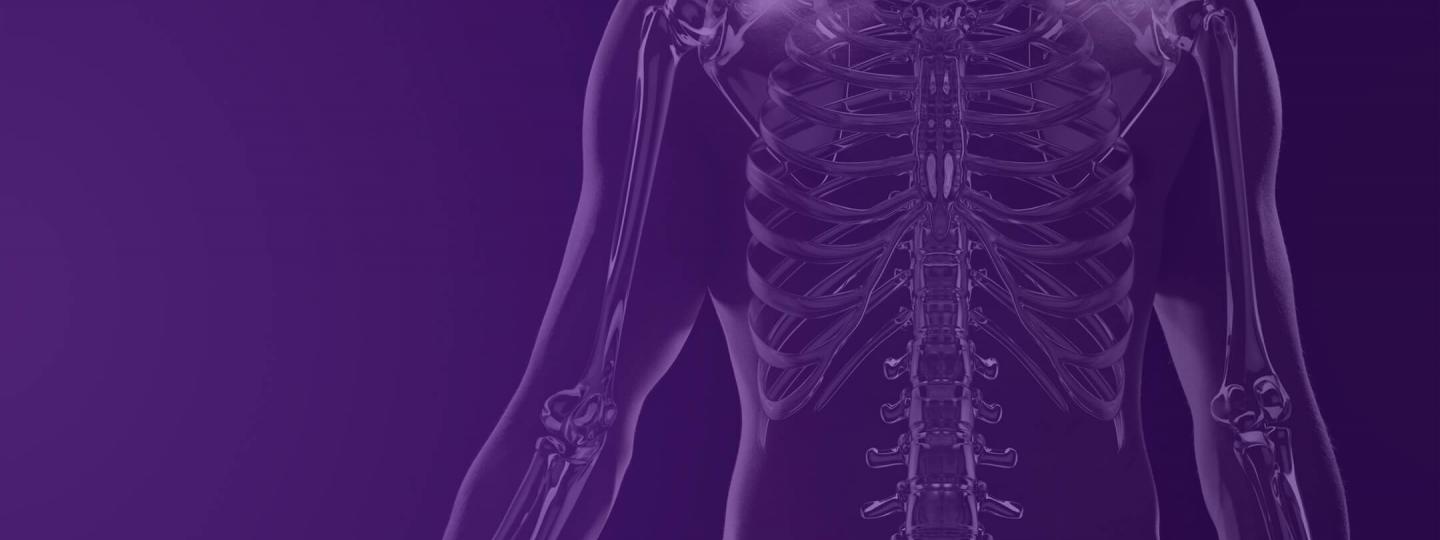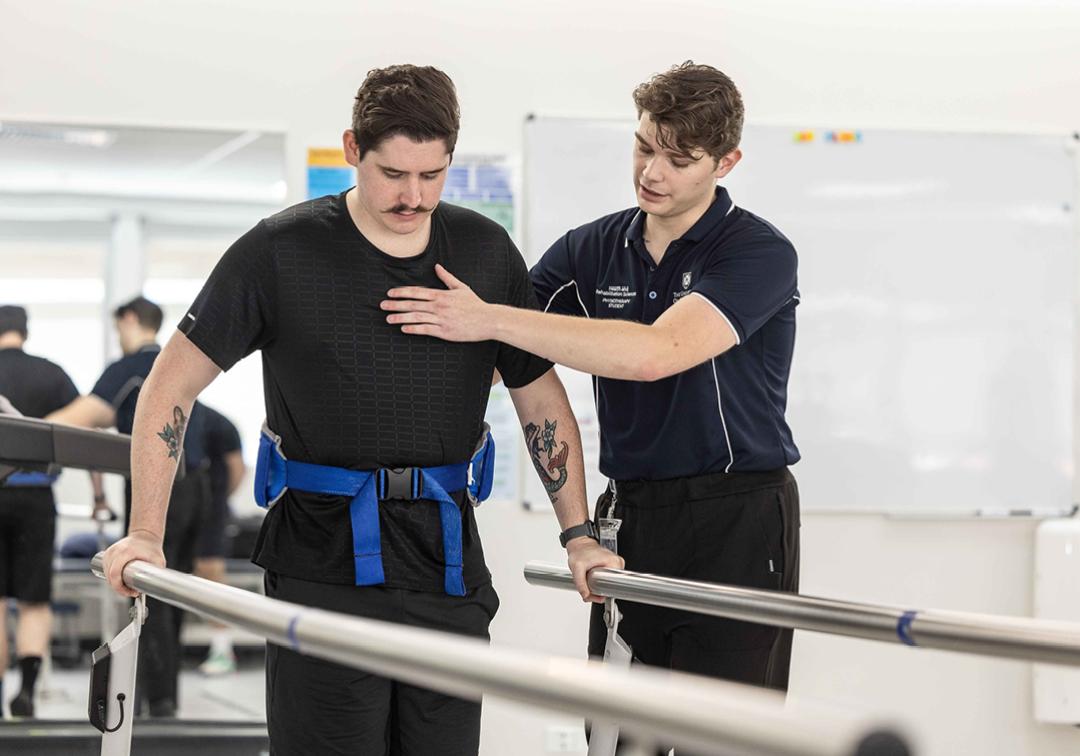
Bachelors of Human Movement and Nutrition Sciences / Science
Overview
Combine your passion for science with studies in the fields of health, exercise and nutrition in this dual program, and make a real impact on the health of communities.
In the Bachelor of Human Movement and Nutrition Sciences, you’ll discover the roles that food, physical activity, exercise and sleep play in our health, the prevention of chronic disease, and sporting performance.
You’ll develop knowledge to address 2 of the most important modifiable risk factors for chronic disease – physical activity and nutrition.
The Bachelor of Science will equip you with the skills needed for the future of work, including critical thinking, data analysis, problem solving, creative thinking, advanced technical capabilities and communication skills.
You'll learn from renowned experts in world-class facilities and get hands-on experience with industry-relevant technology.
When you graduate, you'll have 2 highly respected qualifications and the skills to engage in a globalised world and contribute to solving its health challenges.
- Location
- St Lucia
- Duration
- 4 Years (or part time equivalent)
- Start Semester
- Semester 1 (23 Feb, 2026), Semester 2 (27 Jul, 2026)
- QTAC Code
- 720702
- Program Code
- 2532
- AQF
- Level 7
- Location
- St Lucia
- Fees
- A$54096
- Duration
- 4 Years
- Start Semester
- Semester 1 (23 Feb, 2026), Semester 2 (27 Jul, 2026)
- Semester dates for 2027 are yet to be confirmed
- QTAC Code
- 720702
- Program Code
- 2532
- CRICOS Code
- 116544D
- AQF
- Level 7
Program highlights
Program highlights
- Combine health expertise with scientific thinking to prepare you for your career or pathways to postgraduate study.
- Learn with other scientific-minded future health professionals at a world-leading university for sports-related subjects.
- Develop the transferable skills essential to long-term job success in a range of industries, including the health sector.
- Graduate with 2 highly respected scientific degrees and open the door to a broad range of career possibilities.
Majors
Tailor your studies to suit your goals. This program offers these options:
- Applied Mathematics
- Applied Mathematics
- Archaeological Science
- Astrophysics
How you'll learn
Your learning experiences are designed to best suit the learning outcomes of the courses you choose.
- Lectures
- Tutorials
- Work placements
- Online study
- Research experience
- Laboratory work
- Seminars
- Workshops
Placements and work experience
What you'll study
At UQ, degrees are called 'programs' and subjects are called 'courses'.
Career possibilities
Our programs prepare you for your first job and beyond. Depending on which major you choose, here are some of the careers you could be on your way to:
- Nutritionist
- Fitness and weight loss consultant
- Health policy analyst
- Behaviour therapist
- Health and well-being consultant
- Health policy analyst
- Food chemist
- Laboratory technician
- Data scientist
- Research officer
Events
See all events
9 June
Master of Physiotherapy information webinar
Stories
See all stories
UQ people
Turning her curiosity into a healthcare career
4-minute read

Uni life
What’s it like to study biotechnology as a postgraduate?
7-minute read

UQ people
Chiemeka’s PhD story: cost-effective treatment for brain disorders
4-minute read
Stories
See all stories
UQ people
Turning her curiosity into a healthcare career
4-minute read

Uni life
What’s it like to study biotechnology as a postgraduate?
7-minute read

UQ people
Biotech with purpose: Krishtee’s plan to future-proof food in Mauritius
2-minute read
Entry requirements
Prerequisites
- General English subject (Units 3 & 4, C)
- Mathematical Methods or Specialist Mathematics (Units 3 & 4, C); and,
- one of Biology, Chemistry, Earth and Environmental Science or Physics (Units 3 & 4, C)
- From Semester 1, 2028, Earth and Environmental Science will no longer be accepted.
Prerequisites
- General English subject (Units 3 & 4, C)
- Mathematical Methods or Specialist Mathematics (Units 3 & 4, C); and,
- one of Biology, Chemistry, Earth and Environmental Science or Physics (Units 3 & 4, C)
- From Semester 1, 2028, Earth and Environmental Science will no longer be accepted.
Minimum entry score
Select where you studied and your qualification to see the minimum entry score you need to be considered for this program.
Use the minimum entry score as a guide. Your score must be at least equivalent to the required Australian Year 12 ATAR score. Entry scores are reviewed each year.
Equivalent subjects
| Subject | Qualification equivalent |
|---|
Entry score threshold
| ATAR / Rank | IB |
|---|---|
| 80 | 30 |
These are the lowest adjusted scores we made an offer to in Semester 1, 2025. Entry scores are based on the most recent Semester 1 intake and are updated in April each year. Meeting the entry score threshold doesn't guarantee admission.
Guarantee your place at UQ: If you meet our guaranteed minimum ATAR you could secure an offer for your preferred program.
English language requirements
IELTS overall 6.5; reading 6; writing 6; speaking 6; listening 6. For other English Language Proficiency Tests and Scores approved for UQ
TOEFL iBT (including Paper Edition) - Overall 87, listening 19, reading 19, writing 21 and speaking 19.
PTE Academic - Overall Score of 64 and 60 in all sub bands.
BE - A minimum overall grade of 4 plus a minimum grade of C in all macro skills.
CES - Overall 176 and 169 in all sub bands.
OET is not accepted.
There are other ways to meet the English language requirements. For some programs, additional conditions apply.
Student visas
International students who are accepted into full-time study in the Bachelors of Human Movement and Nutrition Sciences / Science are eligible to apply for an Australian student visa (subclass 500).
There are a number of requirements you must satisfy before a visa is granted, including the Genuine Student (GS) requirement.
Entry score range
This table shows the range of entry scores for recent secondary students offered a place in the B HumMvtNutSc/B Science for Semester 1, 2025
| Without adjustments | With adjustments | |
|---|---|---|
| Highest | 98.8 | 99.75 |
| Median | 83.95 | 87.6 |
| Lowest | 76.05 | 80 |
Who you'll study with
Here's a snapshot of our student intake for this program in Semester 1, 2025:
| Applicant background | Number of students | Percentage of all students |
|---|---|---|
(A) Higher education study | <5 | <5 |
(B) Vocational Education and Training (VET) study | 0 | 0% |
(C) Work and life experience | 0 | 0% |
| (D) Recent secondary education | ||
| N/P | N/P |
| 0 | 0% |
| 0 | 0% |
International students | 0 | 0% |
Total | 6 | 100% |
"<5" — The number of students is less than 5.
N/A — Students not accepted in this category.
N/P — Not published. The number is hidden to protect the privacy of students in other cells.
Need help meeting the entry requirements?
We can help you meet the minimum entry score, subject prerequisites or English language requirements for your preferred program.
If you haven't studied the prerequisites or need to improve your entry score, we can help.
Additional application information
Additional application information
Majors and minors
Majors
Tailor your studies to suit your goals. This program offers these options:
Minors
Tailor your studies to suit your goals. This program offers these options:
Majors
Tailor your studies to suit your goals. This program offers these options:
Minors
Tailor your studies to suit your goals. This program offers these options:
Fees and Scholarships
Indicative annual fee
Approximate yearly cost of tuition (16 units). Your fees will vary according to your selected courses and study load. Fees are reviewed each year and may increase.
$13,470
2026
Approximate yearly cost of tuition (16 units). Your fees will vary according to your study load. Fees are reviewed each year and may increase.
AUD $54,096
2026
Government assistance
Financial aid
As an international student, you might be eligible for financial aid – either from your home country, or from the Australian Government.
HECS-HELP
Domestic places in the Bachelors of Human Movement and Nutrition Sciences / Science are Commonwealth supported, as long as you meet all Commonwealth supported place eligibility requirements.
This means the cost of your education is shared between you and the Australian Government. Instead of tuition fees, Commonwealth supported students pay what are called student contribution amounts.
If you have a Commonwealth supported place, you may also be eligible for HECS-HELP. This is an Australian Government loan scheme to assist eligible students with the cost of their student contribution amounts.
Centrelink support
The Australian Government offers a number of income-support payments to eligible Australian university students.
Scholarships
You may be eligible for more than 100 scholarships, including:
How to apply
Applying online
If your senior schooling is from outside Australia, you can submit your application to UQ. Or, if you prefer, you can use an approved UQ agent near you.
The program code for the Bachelors of Human Movement and Nutrition Sciences / Science is 2532.
How to apply for undergraduate study
If your senior schooling is from Australia
Submit your application to the Queensland Tertiary Admissions Centre if you're an international student who is currently studying:
- Australian Year 12 (in Australia or another country), or
- the International Baccalaureate in Australia.
The QTAC code for the Bachelors of Human Movement and Nutrition Sciences / Science is 720702.
Applying through QTAC
All domestic applications should be submitted to the Queensland Tertiary Admissions Centre (QTAC).
The QTAC code for the Bachelors of Human Movement and Nutrition Sciences / Science is 720702.
Important dates
If you’re studying Year 12 in Australia, go to the QTAC website to check the closing date for this program.
If you’re applying to UQ, the closing date for this program is:
- To commence study in semester 2 - May 31 of the year of commencement.
- To commence study in semester 1 - November 30 of the previous year.
Visa processing times vary. Apply and accept your offer as early as you can.
To learn more about UQ dates, including semester start dates, view the Academic Calendar.
Important dates
To check the closing date for this program, go to the QTAC website.
To learn more about UQ dates, including semester start dates, view the Academic Calendar.
Admissions schemes
Applying to university can be both exciting and daunting, which is why we’ve tried to make the process as simple as we can.
We have several schemes in place to improve your chances of getting a place at UQ.
Pathway options
A rank or score doesn’t determine your potential.
If you're not offered a place in your first-choice program – or if you don't meet the entry requirements – you still have a number of options.
Aboriginal and Torres Strait Islander applicants
For support with applying – or if you have any questions about university life – get in touch with our Aboriginal and Torres Strait Islander Studies (ATSIS) Unit.
Explore other programs
Bachelors of Business Management / Science
Bachelor of Exercise and Sport Sciences (Honours)
Bachelor of Health, Sport and Physical Education (Honours)
Bachelor of Clinical Exercise Physiology (Honours)
Express yourself. And your interest.
They say choosing a degree is hard, which is why we've made it easy. Register your interest and we'll send you everything you need to know about applying to UQ.
We will use your information to keep you informed about UQ programs, news, events and scholarships. By submitting this form, you consent to the terms of UQ's Marketing consent and privacy notice.


